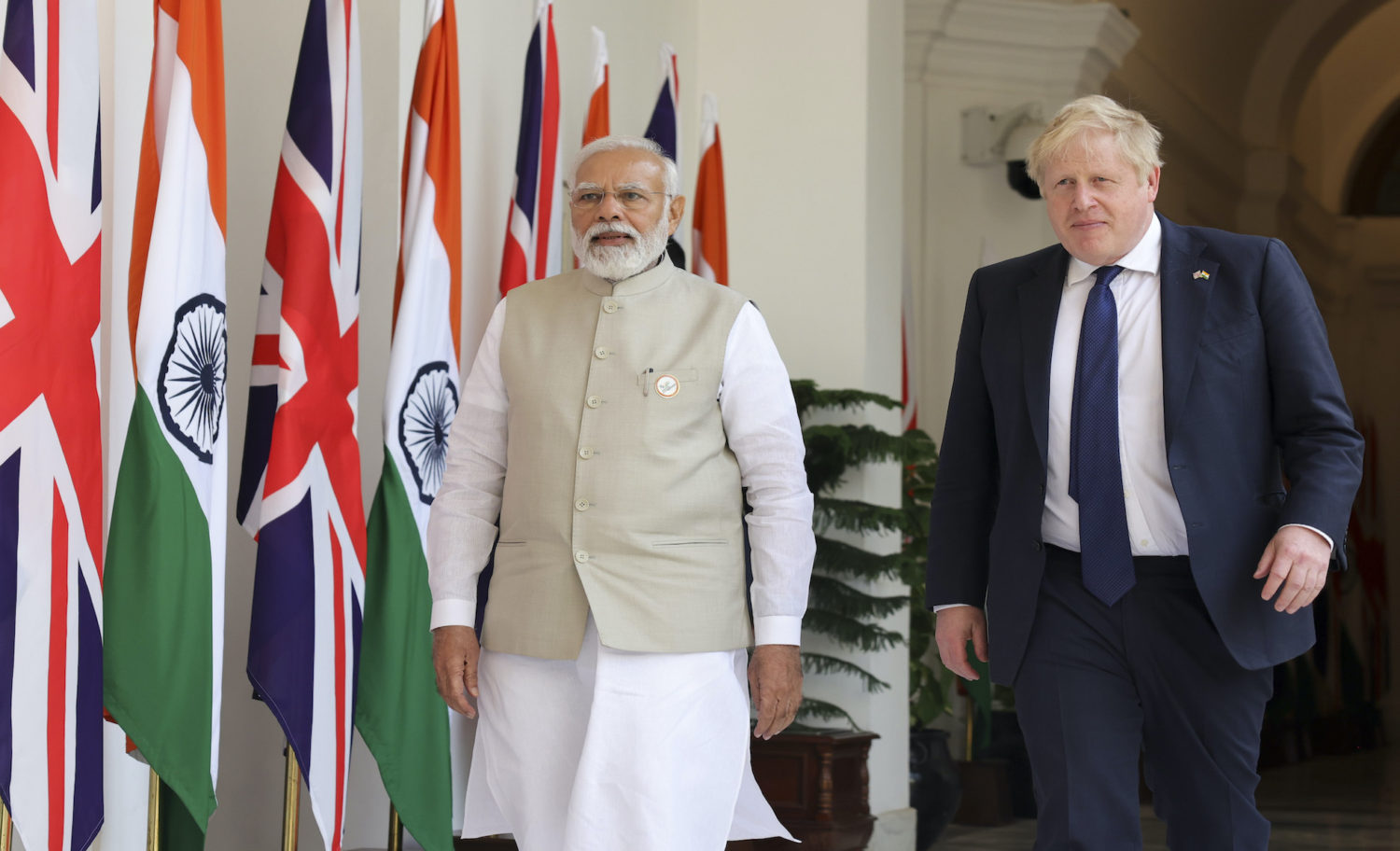Reaching out
With the right strategy rooted in its values, Labour can win the British Asian vote back from the Conservatives. Shalini Sharma explains
Seventy-five years after South Asia freed itself from British colonialism, the government is back in the region coveting a new era of trade agreements post Brexit. India, and to a lesser extent Bangladesh, Sri Lanka and Pakistan, are seen by Britain as natural partners, bound to this country by vestigial ties of history. They still belong to the same club, after all: the Commonwealth.
Now, after a series of resignations, Boris Johnson is stepping down as prime minister. But his cabinet did seem more at ease with the British South Asian community at home than previous prime ministers. Up until Rishi Sunak’s resignation, for the first time in British history two of the three biggest ministerial portfolios – the Home Office and the Treasury – were held by politicians of South Asian heritage, whilst three more served in the cabinet. And British Asians voted disproportionately in favour of Brexit in 2016. Saffron shades blend nicely with blue rinse Conservativism.
That may change come the next general election. Two out of Labour’s top 10 target seats have significant South Asian populations – Bolton North East and Chipping Barnet. Yet equally, there are seats such as Walsall South and Ilford North, where historic South Asian support for Labour looks vulnerable.
The UK government is currently negotiating a trade deal with India – but it needs to tread carefully. Democracy in South Asia has taken a battering. The capitulation of Imran Khan in Pakistan to his overseers in the army; the hard-man authoritarianism of Narendra Modi in India; state-sponsored communal violence in Sri Lanka and Bangladesh; and Burma in a state of civil war mean we have seen the region tumbling down the world rankings of free states.
In particular, the health of the Indian polity – once a source of stability in the region, as well as the UK’s largest trading partner there – demands our attention. Expert opinion is increasingly scathing about India’s democratic credentials. Freedom House categorises India as ‘partly free’. V-Dem reports that India has become an ‘electoral autocracy’, while the Democracy Index compiled by the Economist Intelligence Unit has labelled India as a ‘flawed democracy’.
As these indices suggest, India is falling behind in several important areas: the autonomy of the media; the independence of the Lok Sabha (parliament); everyday accountability in India’s vast bureaucracy; the judicial and police system; the preservations and human rights; and, perhaps most concerning of all, the treatment of minority communities, namely Muslims, Dalits and Christians.
The Labour party ignores what is happening now in South Asia at its peril. True, pointed questions have been asked in parliament whether the UK should be shaking hands with an Indian government that is busy interning its opponents, banning the internet in Kashmir, and expelling humanitarian organisations such as Amnesty International. However, blithe reassurances are trotted out.
Boris Johnson and Liz Truss’ cheerleaders argued that trade with India will itself lead to improved human rights. Some politicians even seem prepared to explain away the persecution of Indian Muslims. Even Labour veterans get caught up in the knee-jerk defence of India’s supposedly secular constitution.
Labour must not become complicit in this complacency on human rights abuse in South Asia. Instead, the party should return to its traditions of pursuing an ‘ethical’ foreign policy of the kind set out by Robin Cook in the early days of New Labour. It must do more than just pay lip service to the manifesto commitment to protecting British workers as well as human rights and democracy across the globe. There needs to be ethical oversight on every trade deal undertaken in the post-Brexit world, including those with ‘old’ friends like India.
The Labour party must also become even more inclusive in reaching out to British Asians. The Tories should not be allowed to take saffron Conservatism for granted. A recent report by the Carnegie Endowment for International Peace reveals that British Asian voters in swing constituencies are not so impressed by UK-India trade deals. What they want is recognition for their contribution to British society. At present, Labour has a handful of women of South Asian heritage in its shadow cabinet, but they are not especially prominent. Surely more can be elevated from the backbenches? Labour is after all the party with the largest number of MPs from ethnic minority backgrounds.
But to truly stand a chance of winning the next general election, Labour needs to confront how it has lost ground as the party of anti-racism in the wake of the antisemitism scandal of the Corbyn era. This has affected the image of the party amongst all ethnic minorities, including the core communities of British South Asians. A Labour party that is consistent in its own anti-racism can be a true friend of India, Pakistan, Sri Lanka and elsewhere. At the moment, it is all too easy for defenders of authoritarianism in South Asia to point to racial injustice and inequality in the west.
Post-Brexit trade deals in South Asia do not need to be a return to the bad old days of Empire, with human rights low on the agenda. Labour has much to be proud of in how it helped free the countries of South Asia from colonialism in the 20th century. Now, 75 years later and with Johnson out, the party can become a critical friend of the region once more, restoring its reputation overseas and reaping the benefits at the next general election.
Image credit: Prime Minister’s Office, GODL-India

